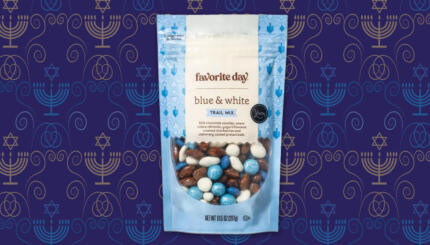“When you become a Bat Mitzvah,” my mother once told me, “you will be a Jewish adult.”
I remember asking myself what those words meant. What was different about being a Jewish adult than being any other kind of adult? Was I now supposed to read from the Torah every week? Was I supposed to gather my family and make sure we went to every possible service? Most importantly, did this mean that I was no longer allowed to look for the Afikomen at Passover?
When I eventually asked my mother what it meant to be a Jewish adult after my Bat Mitzvah, she said four words that stuck with me to this day.
“It means you count.”
In a ritualistic sense, she meant that I counted as part of a minyan – the traditional group of ten Jewish adults required to hold certain prayer services. But even as a thirteen year old, I knew that those words carried far more weight. As a potential tenth member of a future minyan, I held a certain kind of power. Simply by showing up, I could make a difference in what prayers were said and which rituals were being practiced. But this power was not one to be used lightly. It was one based in obligation, both to my own Jewish identity and to the greater Jewish community.
Five years later I experienced déjà vu when one of my high school teachers told me, “Congratulations! You’re an adult now!” Up until that moment, apart from in synagogue, I hadn’t felt like much of an adult. I didn’t work a full time job. I didn’t pay all of my own bills. Furthermore, none of this was going to change simply because I was now eighteen years old. But even without asking her, I knew exactly what she meant. I was now an adult because I now had the honor of participating on one of America’s oldest practices: voting.
Now I am twenty-three years old and I am voting in my first midterm election. It is an exciting feeling to make my voice heard and be a part of this storied tradition… in fact, it is a similar feeling to the first time that I, as a teenager, counted as the tenth member of a minyan. As I filled in my absentee ballot, I felt proud. I felt empowered. I felt… connected. Generations of Americans had cast their votes just like I had. In that moment, something clicked for me. Elections would not be possible if we, as citizens, did not take the time to vote and voice our beliefs, much like Judaism would not be possible if we, as Jews, did not choose to be active members of our communities.
In this way, my Jewish and secular identities are inexplicably connected. Both parts of who I am urge me to step forward. To speak up. To be counted. This realization now follows me, from the pew to the voting booth, and everywhere in between.
Preparing to vote? Here’s a tool that will let you plug in your address and get nonpartisan information on everything you’ll find on your ballot.



